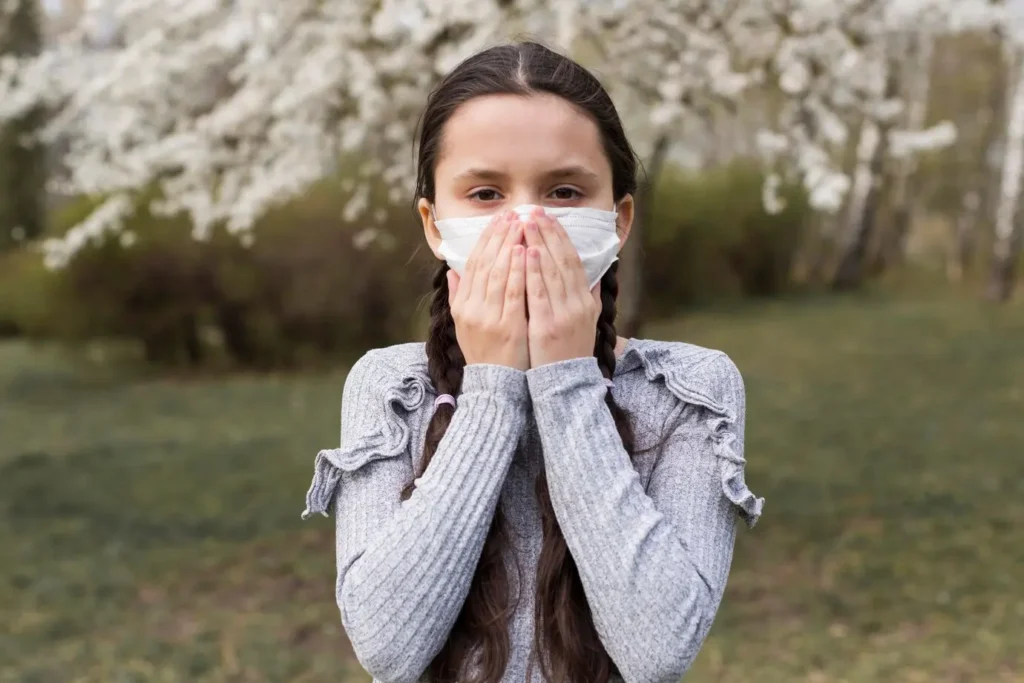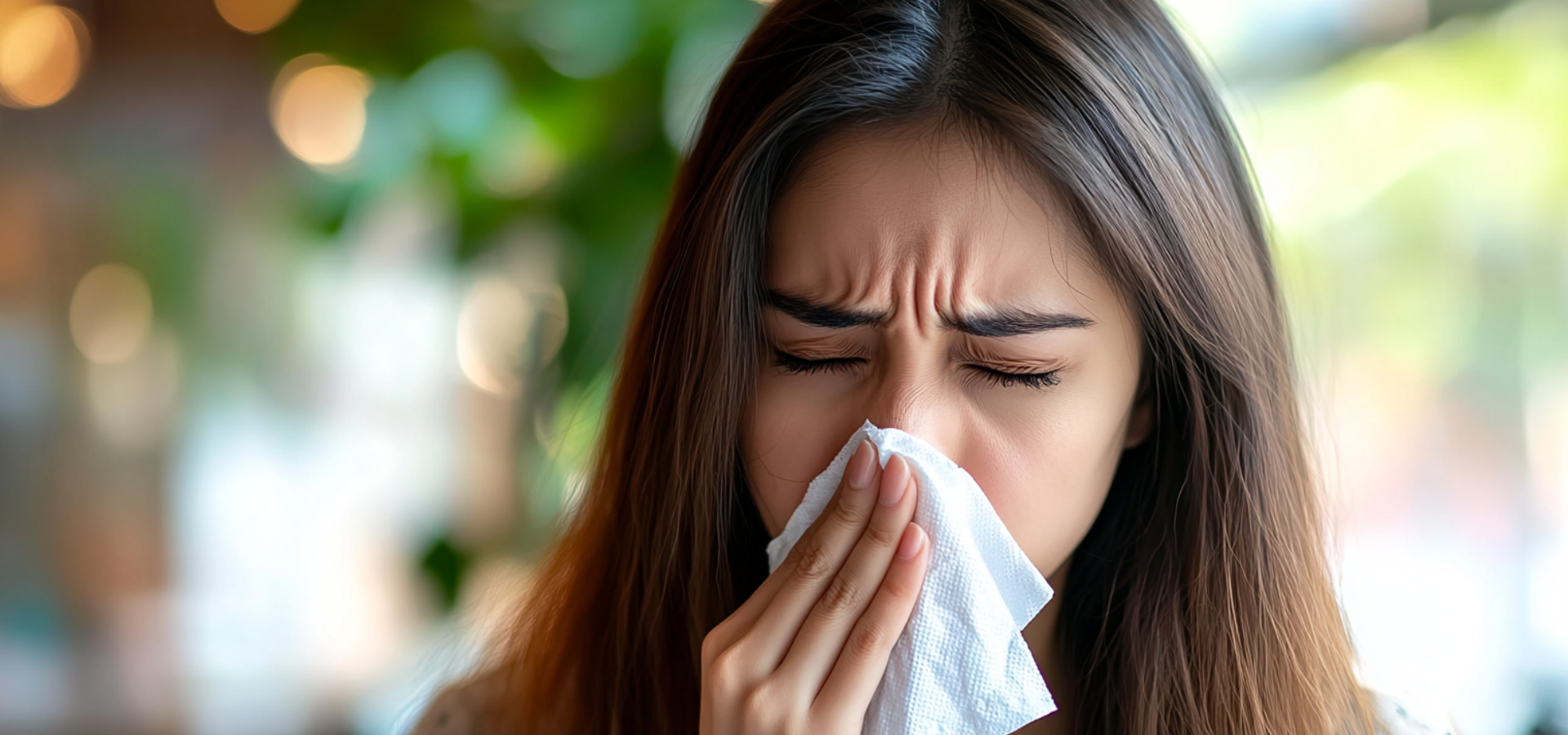
10 Things to Do to Avoid Ragweed Allergy
Living with ragweed allergies can be highly irksome. Constant sneezing, itchy eyes, and a runny nose—these symptoms aren’t just uncomfortable. They can impact your day-to-day activities, affect your work/studies, and cause other troubles like insomnia.
Seeking the proper treatment for your ragweed allergy can help curb the symptoms and provide relief. But it’s equally important to adopt a proactive approach, minimize exposure to ragweed pollen, and keep these allergies at bay.
So, if you’re wondering how to avoid ragweed allergies, this blog is the holy grail. We’ve compiled a list of 10 essential tips to help you easily navigate the ragweed season.
But before that, let’s learn about ragweed allergies and their pesky symptoms.
Understand Ragweed Allergy
Ragweed is a flowering plant spread throughout North America, mostly in the southwest U.S. and northwest Mexico.
One ragweed plant can churn out a whopping 1 billion pollen grains (powdery substance), which is the leading cause of ragweed allergy.
The pollen is lightweight and can easily cover miles with the slightest breeze. But what sets it apart from other pollen is the blooming period—late summer and fall rather than the spring season.
Upon inhalation, the immune system mistakes the ragweed pollen for an invader and overreacts, releasing antibodies and chemicals. This immune response leads to the symptoms of ragweed allergy.
The Impact of Ragweed Allergy on Health and Daily Life

Ragweed allergies are highly bothersome. Allergic Rhinitis or hay fever is one of its most common reactions.
The symptoms tend to worsen with warm and dry days and cool nights, peaking between 10 am and 3 pm. These include:
- Runny nose
- Postnasal drip
- Headache
- Coughing
- Watery, itchy, or swollen eyes
- Skin rash or hives
- Increased sinus pressure or facial pain
We understand the struggle that ragweed allergies can bring, often leading to fatigue and exhaustion. They can disrupt your daily routine and force you to avoid certain outdoor activities. We’re here to help you manage these allergies and regain control of your life.
Tips to Avoid Ragweed Allergy
Given below are 10 things you must do to avoid catching ragweed allergies:
1.Monitor Pollen Forecasts and Stay Indoors During Peak Times
Adopting a proactive approach is the best way to nip ragweed allergies in the bud. That starts with keeping up with pollen forecasts.
The ragweed season runs from August to November, hitting a peak in the morning or dry noon.
Dodge peak times and areas with high pollen levels by tracking local ragweed pollen count. It’s best to venture outside either during the late afternoon or after a good rain.
2.Keep Windows Closed and Use Air Conditioning.
Close the doors and windows of your house during the peak ragweed season to keep the pollen out. Car windows are no exception.
Install air conditioners with High-efficiency Particulate Air (HEPA) filters to effectively trap ragweed pollen.
3.Minimize Exposure When Outdoors.
When stepping outside, gear up to prevent exposure to ragweed pollen. Use sunglasses to shield your eyes and a pollen mask to keep those minute grains at bay.
Opt for clothes that provide complete coverage to the skin—long sleeves, ankle-length pants/trousers/jeans.
Invest in PPE kits for added protection if you’re highly sensitive to ragweed.
4.Rinse off Pollen After Being Outdoors.
Always take a shower after returning from outdoors to rinse off pollen that might have clung to your skin, clothes, and hair.
Wash your outside clothes separately so that they don’t further contaminate pollen-free clothes. Clean your protective gear, including sunglasses, masks, etc.
5.Keep Indoor Spaces Clean and Allergen-free.
Cleanliness is a non-negotiable checkbox for those living with allergies. You must vacuum the carpet as well as mop the floor regularly for better results.
Dust your furniture daily with a damp cloth to remove settled pollen and dust. Wash your bed linen and curtains in hot water (preferably with an antiseptic).
Consider buying allergen-proof bedding if you live in an area with high ragweed pollen levels.
6.Manage Pets and Their Exposure to Ragweed Pollen.
Animals are biotic agents of pollination. That means if you have a pet, the ragweed situation is likely to worsen in your house.
Fret not. You can curb it by increasing pet showers for the ragweed season and keeping them off furniture. Always wipe their fur and paws after they have been outside to remove pollen.
7.Optimize Indoor Humidity Levels.
Dry as well as damp environments foster the growth of dust mites and mold, aggravating ragweed allergy symptoms.
To combat this, keep the indoor humidity level between 40%-50%. This helps kill allergy-carrying bugs and maintain freshness.
8.Pay Attention to Your Diet
Foods like bananas, watermelon, zucchini, cucumber, and sunflower seeds can exacerbate your allergy. Thus, it’s best to stay informed and steer clear of foods that trigger ragweed allergy.
Consume more probiotics, omega-3 fatty acids, and foods with anti-inflammatory properties like broccoli, bell peppers, berries, nuts, avocado, etc.
9.Consult With an Allergist
It’s never too late to seek treatment for ragweed allergy and alleviate the symptoms. An allergist will perform certain tests to confirm the trigger (ragweed pollen, in your case).
Accordingly, they will devise a treatment plan that might include medications, allergy shots, nasal sprays, and other interventions.
Take Action to Prevent Ragweed Allergies
Staying informed is key to proactive ragweed allergy management. That involves knowing the pollen count in your area, taking steps to minimize exposure, and understanding your dietary triggers.
By implementing these strategies, you can significantly reduce your pollen exposure, leading to a more comfortable and allergy-free life.
And if you do find yourself battling with ragweed allergies, fret not. Dr Neha Reshamwala, a board-certified specialist in Allergy and Immunology at Frontier Allergist, offers personalized and evidence-based treatments tailored to your needs.Book an appointment today and take the first step towards managing your ragweed allergies.

Written/Reviewed by: Dr. Neha Reshamwala
NPI number: 1780874578
Page last reviewed: 04/16/2025


 All blog posts
All blog posts




